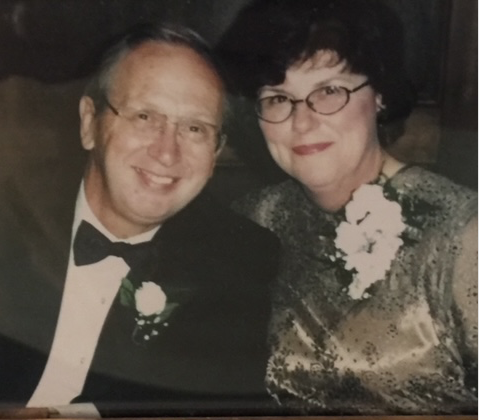
Keith Weikel, the former federal Medicaid overseer who spent 20-plus years as a top executive for what was once the nation’s largest nursing home chain, is being remembered as one of the industry’s leading giants.
Weikel died Tuesday in Georgia on his 85th birthday after enduring medical challenges that included cancer and peritoneal dialysis.
Memories of Weikel, who is credited with discovering and nurturing dozens of current long-term care stars, depict a public policy genius who left government work to first lead a national hospital group and then major nursing home entities.
“Our sector has lost a titan,” Clif Porter II, senior vice president of government affairs for the American Health Care Association, told McKnight’s Long-Term Care News. Weikel hired Porter to be the administrator at a challenging 218-bed facility in suburban Washington, D.C., in 1997. He eventually promoted Porter to regional and national duties for companies that would comprise HCR ManorCare, a behemoth that at one time included more than 500 skilled nursing centers, assisted living facilities, rehab clinics and home health and hospice units in 32 states.
“The administrator I replaced when I originally got hired is David B. Parker, who is now the president of ProMedica Senior Care,” Porter said. “Keith built us into winners. He is in our professional DNA.”
Weikel retired in 2006 as senior executive vice president and COO of Manor Care Inc. That capped 22 years as a SVP with either it or Health Care and Retirement Corp. of America (HCR), the company it eventually merged with. The chain is now part of the ProMedica family. Weikel also spent 11 years as a leader of the Alliance for Quality Nursing Home Care.
Porter and others remember Weikel for his attention to personal details as well as precise corporate interests. Weikel would tell company employees that HCR should actually stand for “helpful, caring, responsive.”
“Keith cared about people. He was whip smart, a Ph.D. but so darn practical,” Porter said. “He had a talent to break a problem in pieces and devote the right resources to fix it. He wanted you to learn, not just succeed, but to learn and grow.”
Parker recalled Weikel challenging and supporting his leaders at every turn. He also remembered how his mentor would whistle while walking through the hallways of headquarters when various rooms were hosting operational review meetings.
“You’d just hope the whistling would keep going by because if he stopped and came in, you could be there for two hours, going over every detail. He asked the tough questions but had empathy,” Parker said. “He was a policy genius and challenged people to think differently, and big.”
The American Health Care Association made extensive use of Weikel’s background and speaking ability in the 1980s and 1990s. He became the face and voice of the industry, capitalizing on his vast knowledge of government workings to testify at numerous congressional hearings and panels.
Malcolm Keith Weikel was born and raised in Pennsylvania, first earning an undergraduate pharmacy degree from the Philadelphia College of Pharmacy and Science. He went on to earn a master’s in pharmacy and then a doctorate in marketing from the University of Wisconsin.
A laboratory at UW’s school of nursing is named the Barbara D. Weikel Clinical Practice in honor of his wife, whom he first met when she was a student at the Philadelphia School of Nursing. The Weikels have made numerous significant contributions to UW and its academic programs, as well as various other philanthropic causes, friends say. Weikel also counted the university as one of the many places he was an esteemed board member.
In retirement, the Weikels split their time between homes in Toledo, OH, and Sea Island, GA. Former colleagues visited them at the latter, which would also serve as a launching pad to visit former coworkers and their families. It was generally from Sea Island that Weikel would continually check in with his former colleagues over the last four years when his health started to fail. Among other occasions, Parker said he would get a regular “Happy Birthday” call, complete with singing. Weikel also would ask about each family member and reflexively inquire about the company.
For all the business acumen he displayed, however, it was Weikel’s knack of keeping things a family affair that repeatedly stood out, Parker and others say.
“Even during the tough financial times, there was a locking of arms. We were a family and were going to come out stronger,” he explained. “It was a very family-oriented environment, even for a publicly traded company.”
Parker recalled periodic operations meetings at company headquarters in Toledo, which could be stressful but also included relaxing dinners hosted by the Weikels.
“All the regional operations managers would go to Keith and Barbara’s house for dinner,” he said. “There’s 120 people in that house, and it was like having dinner with your uncle and your aunt. He would rotate where people sat; there would be people in the basement, outside on the patio, in the kitchen. And Barbara knew everyone one of us, too, and all about our families. He had an unbelievable heart.”
Weikel is survived by his wife and the couple’s children, Richard and Kristin, among others. A formal memorial service will take place in Toledo in May, details of which are still being planned.




